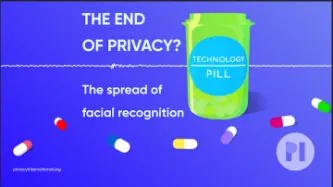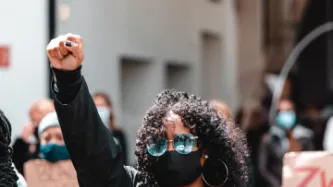Advanced Search
Content Type: Long Read
Zimbabwe has a history of state led surveillance that is carried out more for political gain than for the investigation of legitimate criminal activities. During former President Mugabe’s 37 year rule the government used laws and state security structures to carry out targeted surveillance of persons of political interest and more generalised mass surveillance of the population.
Specific laws such as the Interception of Communications Act as well as mandatory SIM-card registration regulations…
Content Type: News & Analysis
As Amnesty International and Forbidden Stories continue to publish crucial information about the potential targets of NSO Group’s spyware, we know this much already: something needs to be done.
But what exactly needs to be done is less obvious. Even though this is not the first time that the world has learned about major abuses by the surveillance industry (indeed, it’s not even the first time this month), it’s difficult to know what needs to change.
So how can the proliferation and use of…
Content Type: Video
This podcast was recorded before the US Federal Trade Commission told a company called 'Ever' to delete any facial recognition algorithms they developed without consent
Links:
The original article
Info on how to do your own Data Subject Access Request
And the template from the ICO
Info on how to request your data be deleted
Find more from Ann Cavoukian
Find out more about the ACLU's legal challenge in Illinois
Find out more about Robert Julian-Borchack William's case…
Content Type: News & Analysis
Privacy International (PI) has today warned UK regulatory and law enforcement bodies about the potential deployment of an extensive and potentially nationwide police facial recognition surveillance system. We are urging them to investigate and take steps to ensure that no ‘backdoor’ for unlawful facial recognition surveillance will be developed under the umbrella of a crime reporting system.
According to pricing and data-sharing templates, UK surveillance company Facewatch is offering to…
Content Type: Long Read
As more and more of us feel compelled to cover our faces with masks, companies that work on facial recognition are confronted with a new challenge: how to make their products relevant in an era where masks have gone from being seen as the attribute of those trying to hide to the accessory of good Samaritans trying to protect others.
Facewatch is one of those companies. In May 2020, they announced they had developed a new form of facial recognition technology that allows for the…
Content Type: Case Study
Como is one of the most advanced cities in Italy in the use of facial recognition technology (FRT). An investigation for the Italian Wired magazine published in June 2020 exposed how the system had been bought, installed and tested for months with little transparency and despite the lack of a clear legal framework.
The investigation was entirely based on tools available to everyone, such as Freedom of Information requests (FOI requests. Similar to PI’s campaign 'Unmasking policing, inc', it…
Content Type: Long Read
What Do We Know?
Palantir & the NHS
What You Don’t Know About Palantir in the UK
Steps We’re Taking
The Way Forward
This article was written by No Tech For Tyrants - an organisation that works on severing links between higher education, violent tech & hostile immigration environments.
Content Type: Case Study
Facial recognition technology (FRT) is fairly present in our daily lives, as an authentication method to unlock phones for example. Despite having useful applications, FRT can also be just another technology used by those in power to undermine our democracies and carry out mass surveillance. The biometric data collected by FRT can be as uniquely identifying as a fingerprint or DNA. The use of this technology by third parties, specially without your consent, violates your right to privacy.
The…
Content Type: Long Read
In April 2018, Amazon acquired “Ring”, a smart security device company best known for its video doorbell, which allows Ring users to see, talk to, and record people who come to their doorsteps.
What started out as a company pitch on Shark Tank in 2013, led to the $839 million deal, which has been crucial for Amazon to expand on their concept of the XXI century smart home. It’s not just about convenience anymore, interconnected sensors and algorithms promise protection and provide a feeling of…
Content Type: Explainer
The internet is filled with guides on how to file a Freedom of Information (FOI) request. Depending on the country you are in, it is likely that a local NGO – or your national freedom of information authority. – will have come up with one. The Global Investigative Journalism Network has an excellent list of FOI resources available in many countries across every continent. We really recommend you take a look at it; many of the FOI guides we love are in that repository.At PI we equally spend much…
Content Type: Case Study
The Ugandan government has a running contract with the Chinese tech giant, Huawei, to supply and install CCTV cameras along major highways within the capital, Kampala, and other cities.
While details of the contract remain concealed from the public, the Uganda Police Force (UPF) released a statement, simply confirming its existing business partnership for telecommunication and surveillance hardware, and software between the security force and Huawei. However, it is not clear whether the…
Content Type: Case Study
Well into the 21st century, Serbia still does not have a strong privacy culture, which has been left in the shadows of past regimes and widespread surveillance. Even today, direct police and security agencies’ access to communications metadata stored by mobile and internet operators makes mass surveillance possible.
However, a new threat to human rights and freedoms in Serbia has emerged. In early 2019, the Minister of Interior and the Police Director announced that Belgrade will receive “a…
Content Type: News & Analysis
On June 9th, in light of the global debate against racial injustices, the company IBM announced they would stop selling facial recognition. In a letter to the US congress, they demanded a “national dialogue on whether and how facial recognition technology should be employed by domestic law enforcement agencies.”
It is worth noting first of all that it is not entirely clear that IBM is actually stopping facial recognition. The letter states that "IBM no longer offers general purpose IBM facial…
Content Type: News & Analysis
Yesterday, Amazon announced that they will be putting a one-year suspension on sales of its facial recognition software Rekognition to law enforcement. While Amazon’s move should be welcomed as a step towards sanctioning company opportunism at the expense of our fundamental freedoms, there is still a lot to be done.
The announcement speaks of just a one-year ban. What is Amazon exactly expecting to change within that one year? Is one year enough to make the technology to not discriminate…
Content Type: Long Read
On 12 April 2020, citing confidential documents, the Guardian reported Palantir would be involved in a Covid-19 data project which "includes large volumes of data pertaining to individuals, including protected health information, Covid-19 test results, the contents of people’s calls to the NHS health advice line 111 and clinical information about those in intensive care".
It cited a Whitehall source "alarmed at the “unprecedented” amounts of confidential health information being swept up in the…
Content Type: Press release
Photo by Ashkan Forouzani on Unsplash
Today Privacy International, Big Brother Watch, medConfidential, Foxglove, and Open Rights Group have sent Palantir 10 questions about their work with the UK’s National Health Service (NHS) during the Covid-19 public health crisis and have requested for the contract to be disclosed.
On its website Palantir says that the company has a “culture of open and critical discussion around the implications of [their] technology” but the company have so far…
Content Type: Long Read
The UK’s Metropolitan Police have began formally deploying Live Facial Recognition technology across London, claiming that it will only be used to identify serious criminals on “bespoke ‘watch lists’” and on “small, targeted” areas.
Yet, at the same time, the UK’s largest police force is also listed as a collaborator in a UK government-funded research programme explicitly intended to "develop unconstrained face recognition technology", aimed “at making face…
Content Type: News & Analysis
Ask people around you if they live in a smart city, and more likely than not they will answer that they don’t. I can tell you that because I have tried.
When giving talks about this very topic in cities like Berlin, The Hague and Stockholm, I always ask this question at the start. The rough ratio I tend to get is that: 15 per cent hesitantly raise their hand to say they do, 60 per cent don’t, 20 per cent just look confused and 5 per cent are not listening.
And yet most people who live in cities…
















